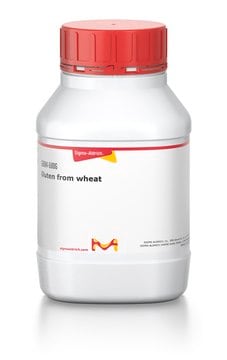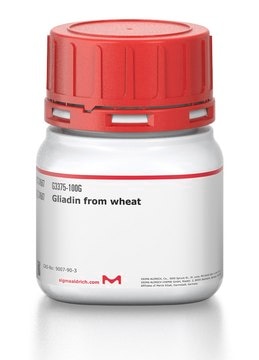71950
Sodium selenite
anhydrous, ≥90.0% (RT)
Synonym(s):
Selenious acid disodium salt
About This Item
Recommended Products
Quality Level
Assay
≥90.0% (RT)
form
powder
loss
≤0.5% loss on drying, 200 °C
mp
>350 °C (lit.)
SMILES string
[Na+].[Na+].[O-][Se]([O-])=O
InChI
1S/2Na.H2O3Se/c;;1-4(2)3/h;;(H2,1,2,3)/q2*+1;/p-2
InChI key
BVTBRVFYZUCAKH-UHFFFAOYSA-L
Looking for similar products? Visit Product Comparison Guide
Related Categories
Application
- In dehydrogenation of benzoins to benzils and, flavanones to flavones under thermal and microwave conditions.
- As a catalyst along with cysteine or glutathione in the reductive debromination of vic-dibromides to alkenes.
- To prepare bis(methylmercuric) selenide (BMS) by reacting with methylmercuric chloride and reduced glutathione or cysteine.
Signal Word
Danger
Hazard Statements
Precautionary Statements
Hazard Classifications
Acute Tox. 2 Inhalation - Acute Tox. 2 Oral - Aquatic Chronic 2 - Eye Irrit. 2 - Skin Irrit. 2 - Skin Sens. 1
Supplementary Hazards
Storage Class Code
6.1B - Non-combustible acute toxic Cat. 1 and 2 / very toxic hazardous materials
WGK
WGK 2
Flash Point(F)
Not applicable
Flash Point(C)
Not applicable
Personal Protective Equipment
Choose from one of the most recent versions:
Already Own This Product?
Find documentation for the products that you have recently purchased in the Document Library.
Customers Also Viewed
Articles
Antioxidants protect biological systems from oxidative damage produced by oxygen-containing free radicals and from redoxactive transition metal ions such as iron, copper, and cadmium.
Our team of scientists has experience in all areas of research including Life Science, Material Science, Chemical Synthesis, Chromatography, Analytical and many others.
Contact Technical Service








